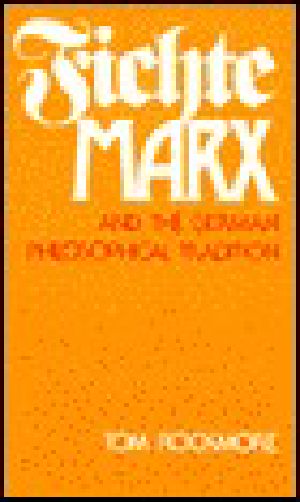Fichte, Marx, and the German Philosophical Tradition

- Authors
- Rockmore, Tom
- Publisher
- Southern Illinois University Press
- Tags
- philosophy , psychology
- ISBN
- 9780809309559
- Date
- 1980-10-01T00:00:00+00:00
- Size
- 0.42 MB
- Lang
- en
A systematic and historical study of the relation of the positions of Fichte and Marx within the context of nineteenth-century German philosophy as well as the wider history of philosophy.
Rockmore’s thesis is that there is a little noticed, less often studied, but nevertheless profound structural parallel between the two positions that can be shown to be mediated through the development of the nineteenth-century German philosophical tradition. Both positions understand man in anti-Cartesian fashion, not as a spectator, but as an active being. Rockmore demonstrates that there is similarity of the two views of activity in terms of the Aristotelian concept (energeia) , ** then indicates the further parallel between the respective concepts of man that follow from Fichte’s and Marx’s views of activity.
Turning to the history of philosophy, Rockmore directs the reader to solid textual evidence supporting the influence of Fichte, not only on Marx’s Young Hegelian contemporaries but on Marx as well. He argues that the Hegelian impact on the interpretation of the nineteenth-century philosophical tradition has served to obscure the parallel between the positions of Fichte and Marx, but that the concept of man as an active being can be used to reinterpret this segment of the history of philosophy and to modify the frequently held view of the classical German tradition as a collection of rather disparate thinkers. Finally, he provides a discussion of the intrinsic value of the anti-Cartesian approach to man as such.